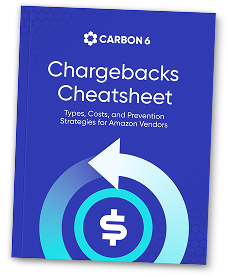Listen to This Article
Key Insights
- Process Over Proof: Most disputes are rejected due to documentation errors, not because the claim is invalid. Retailers’ automated systems require precise compliance.
- Common Errors: The most frequent rejection reasons include mismatched addresses or PO numbers, poor-quality scans, and missing supporting documents like a Bill of Lading (BOL).
- Timing is Crucial: Submitting a claim too early can lead to false approvals that are later clawed back, wasting time and resources.
- Shortages and Chargebacks are Linked: Operational non-compliance that triggers chargebacks (e.g., incorrect labeling) is a leading cause of the receiving errors that result in shortage claims.
- The Fix: A proactive team and automated approach to document validation, bundling, and submission are the most effective ways to increase win rates.
When a retailer like Amazon or Walmart rejects your claim, it’s frustrating. You know you’re owed the money, but a simple documentation error can stop your recovery efforts before they even begin.
This guide breaks down the most common document rejection reasons and provides actionable fixes to help you build stronger claims and protect your profitability.
Amazon Vendor Central: Why Your Documents Get Rejected
Amazon’s Vendor Central relies heavily on automation. A minor discrepancy can trigger an automatic rejection. Here are the most common pitfalls.
1. Mismatched Business Details
Amazon’s automated systems require an exact match for your vendor name and address, triggering errors like [E01] Invalid vendor address for minor discrepancies.
- The Fix: Ensure your invoice details exactly match your settings in Vendor Central.
2. Duplicate Invoice Numbers
Reusing an invoice number triggers a duplicate rejection ([E09]). The system flags the number itself, not the content or date.
- The Fix: Assign a unique invoice number for every submission, including corrected versions.
3. Invalid Purchase Order (PO) Numbers
An incorrect or improperly formatted PO ([E07]) is a common failure point. Amazon POs are 8 characters and case-sensitive.
- The Fix: Double-check that the PO number is correct and uses only upper-case letters.
4. Unreadable or Incomplete Scans
Blurry, low-resolution, or truncated scans are unreadable and will be rejected. If a reviewer can’t read the PO number or delivery confirmation, they can’t approve the claim.
- The Fix: Submit clear, high-resolution, full-page scans where all critical information is legible.
5. Missing Supporting Documents
Disputes require a complete evidence package. Forgetting to attach the Bill of Lading (BOL) or Proof of Delivery (POD) is a common mistake.
- The Fix: Combine the invoice, packing slip, BOL, and POD into a single, organized PDF for each claim.

Walmart Suppliers: Common Document Rejection Reasons
Walmart’s ecosystem presents its own documentation challenges. Success here hinges on clear, connected, and timely evidence.
1. Missing or Unlinked Proof of Delivery (POD)
Walmart heavily relies on shipping documents. A dispute without a signed POD or BOL linked to the PO will likely fail.
- The Fix: Ensure every dispute includes a signed POD or freight bill that clearly references the PO number.
2. Inaccurate Invoice Details
Discrepancies between your invoice and the PO in Retail Link—especially on pricing (Code 11)—trigger denials.
- The Fix: Before submitting, reconcile every line item on your invoice with the corresponding PO in Retail Link.
3. Disorganized Documentation
When documents are stored across different systems, critical evidence gets lost. Delays in finding a POD can cause you to miss the dispute window.
- The Fix: Centralize all shipping and invoicing documents.
4. Submitting Outside the Dispute Window
Most Walmart Supplier Deductions have a strict dispute timeframe. Filing late means forfeiting the funds.
- The Fix: Monitor your deduction codes in Walmart APDP regularly, and use an automated system to track deadlines.

Why Filing Too Early Causes Rejections
While submitting too late is a known problem, submitting too early is a hidden trap. Filing a dispute before it fully settles in the retailer’s system leads to “false positives”—approvals that are later reversed.
Amazon’s systems can take up to 40 days post-invoice to reconcile receipts. Disputing early often results in getting paid for money that would have been automatically repaid anyway.
The Fix: Wait until the deduction is stable. Tactical patience prevents clawbacks and improves the final win rate.
Curious about your potential return on investment? Plug in your figures into our Deduction Management ROI Calculator to compare your current process with an expert-led service.
Turn Rejections into Revenue
Documentation errors don’t just delay payments—they stop them. This problem is amplified during Q4, with higher order volumes and tighter deadlines. By automating validation and adhering to retailer standards, you can transform submission failures into recovery wins.
Recover lost revenue from Walmart and Amazon—fast. Our expert-led deduction and chargeback management system helped Farouk Systems recover $1M in just 8 months. Explore Carbon6 Revenue Recovery.








